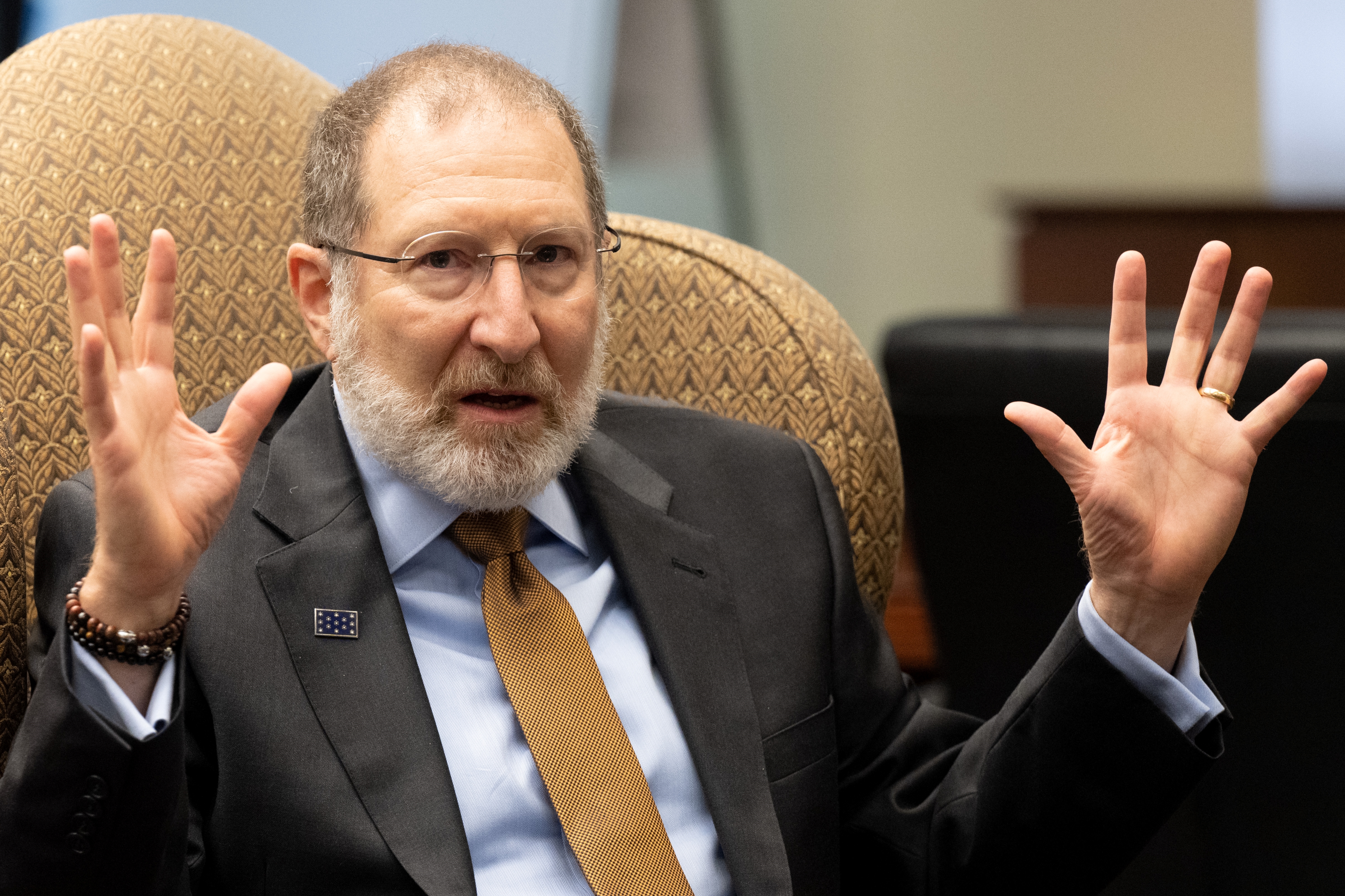The U.S. General Services Administration (GSA), recently appointed GW Law's Steven L. Schooner, LLM '89, the Nash & Cibinac Professor of Government Procurement Law, as an inaugural member (officially, a commissioner) of the nascent federal advisory committee (FAC) tasked to "focus on driving regulatory, policy, and process changes to embed climate and sustainability considerations in federal acquisition." At the committee's first public meeting, on September 22, GSA Administrator Robin Carnahan celebrated this effort to "bring together top experts from around the country ... to help generate ideas for how we can improve the way government buys things and leverage the government's buying power to advance important policy goals." Notices of future (public) meetings will appear in the Federal Register.
"We are thrilled to see Professor Schooner appointed to this Committee. As one of the leading voices on sustainable procurement in the United States, his contributions will be invaluable," said Jessica Tillipman, Assistant Dean for Government Procurement Law Studies.
As the recent storms and flooding in Florida, pending water shortages in Arizona and neighboring states, and horrifying images of devastation from Pakistan remind us, the accelerating effects of climate change can no longer be ignored. Despite this, the federal government lags behind many countries around the world, and, indeed, several US States, in deploying its massive purchasing power to stimulate markets, and drive down the prices, for goods and services that cause less harm to the environment. "That's a squandered opportunity," explains Professor Schooner, "particularly to the extent that the federal government spends more than $500 billion a year (and, recently, more than $600 billion) buying everything from office supplies to weapons systems, to fleet vehicles and new construction." Fortunately, Professor Schooner noted that the initiative casts a wide net, seeking models, best practices, and lessons learned. Among others, Professor Schooner highlighted the committee's inclusion of Arizona State University's Nicole Darnall, who, although unfamiliar with the federal government contracts, brings experience with a dizzying array of analogous government initiatives.
Leading up to his recent appointment, Professor Schooner has increasingly focused his efforts on practitioner-oriented publications, trying to generate discussion of climate change within the professional community, co-authored with Murray Schooner Scholar Markus Speidel, JD '21, introducing the vocabulary and concepts co-authored with Evan Matsuda, class of 2024, with an eye towards driving policymakers and procurement professionals up an admittedly steep learning curve and inject urgency into the slowly acknowledged need for training and behavioral change. He's also gratified and inspired by the level of student engagement on these issues, for example, Michaela Thornton's, JD '22, recently published a note in the Public Contract Law Journal.
Among other things, Professor Schooner has been actively teaming with representatives from industry and the Environmental Protection Agency (EPA) to create a Community of Practice with the National Contract Management Association (NCMA), the nation's largest relevant professional organization. Professor Schooner has discussed these issues in the national media (such as National Geographic magazine), on radio, and on podcasts, including Dean Dayna Bowen Matthew's podcast, Testimony, at innumerable conferences (in the US and abroad - in person and via Zoom), and by offering two introductory/basic sessions (one focused on policy, one focused on actions or implementation) for the DoD acquisition community through the Defense Acquisition University (DAU).
Looking ahead, Professor Schooner is pleased that he'll be teaching GW Law's first "sustainable procurement" course next semester. After more than 20 years teaching core curriculum in the law school's widely renowned government contracts program, Professor Schooner enthused that: "this is obviously new and exciting, but it's hard to think about anything more important to our children's (and their children's futures."
"Adding a sustainable procurement course to our curriculum is a very exciting development," said Dean Tillipman. "Not only will it expose our students to this emerging area of procurement law, but we look forward to the ideas they will generate and the important scholarship they will generate and the important scholarship they will produce, and hopefully publish, on sustainable procurement-related topics."


